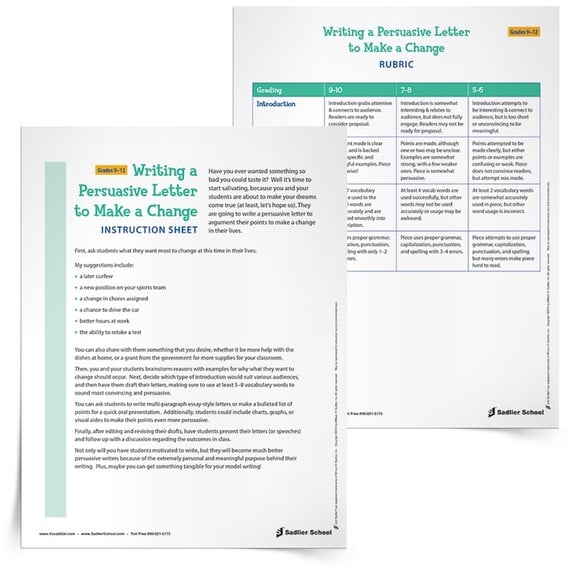November 16, 2015 VG Teaching Resources Vocab & ELA Res, Vocab Gal, ELA K-5, ELA 6-8, ELA Resources - Activities, ELA Focus - Writing, ELA 9-12, ELA Focus - Writing with Vocabulary
Persuasive Letter Writing Exercises for Grades 2–12
By: Vocab Gal
I can’t wait to present at NCTE 2015 so many educational rockstars including writing goddess Dr. Beverly Chin, grammar guru, Tiffany Rehbein, English teacher Katie Decker, and moderator Leanne Deschamps. As I worked with them on our presentation and my part’s culminating activity, I thought what a good blog post it would make.
Plus, in case you don’t get to head to Minneapolis in November (no, I’m not worried about the weather, why do you ask?), here is the activity to share with your students right away!
However, I do hope I get to see you in Minneapolis and share all of my ideas along with the amazing activities and inspiration from Tiffany and Beverly! Come see us on Friday, Nov 20th, from 9:30-10:45 in the Minneapolis Convention Center, 101FG.
Persuasive Letter Writing Exercises
Grades 9–12
Have you ever wanted something so bad you could taste it? Well it’s time to start salivating, because you and your students are about to make your dreams come true (at least, let’s hope so). In this activity, students and teacher write persuasive letters that argue for a change each wants to see in their lives.
First, ask students what they want most to change at this time in their lives.
My suggestions include:
- a later curfew
- a new position on your sports team
- a change in chores assigned
- a chance to drive the car
- better hours at work
- the ability to retake a test
You can also share with them something that you desire, whether it be more help with the dishes at home, or a grant from the government for more supplies for your classroom.
Then, you and your students brainstorm reasons with examples for why what they want to change should occur. Next, decide which type of introduction would suit various audiences, and then have them draft their letters, making sure to use at least 5-8 vocabulary words to sound most convincing and persuasive.
You can ask students to write multi-paragraph essay-style letters or make a bulleted list of points for a quick oral presentation. Additionally, students could include charts, graphs, or visual aides to make their points even more persuasive.
Finally, after editing and revising their drafts, have students present their letters (or speeches) and follow up with a discussion regarding the outcomes in class.
Not only will you have students motivated to write, but they will become much better persuasive writers because of the extremely personal and meaningful purpose behind their writing. Plus, maybe you can get something tangible for your model writing!
Grades 2–8
Have you ever wanted something so bad you could taste it? Well it’s time to start salivating, because you and your students are about to make your dreams come true (at least, let’s hope so). They are going to write a persuasive letter to argument their points to make a change in their lives.
First, ask students what they want most to change at this time in their lives.
My suggestions include:
- a later bedtime
- a chance to try a new activity, instrument, or sport
- a change in chores assigned
- the opportunity to travel
You can also share with them something that you desire, whether it be more help with the dishes at home or a government grant for more supplies for your classroom.
Then, you and your students brainstorm reasons and examples for why what they want to change should occur. Next, decide which type of introduction would suit various audiences, and have them draft the letters, making sure to use at least 5 vocabulary words to sound more convincing and persuasive.
You can ask students to write a letter or make a list of points for their persuasive or oral presentation. Additionally, students could include charts, graphs, or visual aides to make their points even more persuasive.
Finally, after editing and revising their drafts, have students present their letters (or speeches) and follow up with a discussion regarding the outcomes in class.
Not only will you have students motivated to write, but they will become much better persuasive writers because of the extremely personal and meaningful purpose behind their writing. Plus, maybe you can get something tangible for your model writing!
Download the instruction sheets above and grading rubrics for my persuasive letter writing exercises now!




